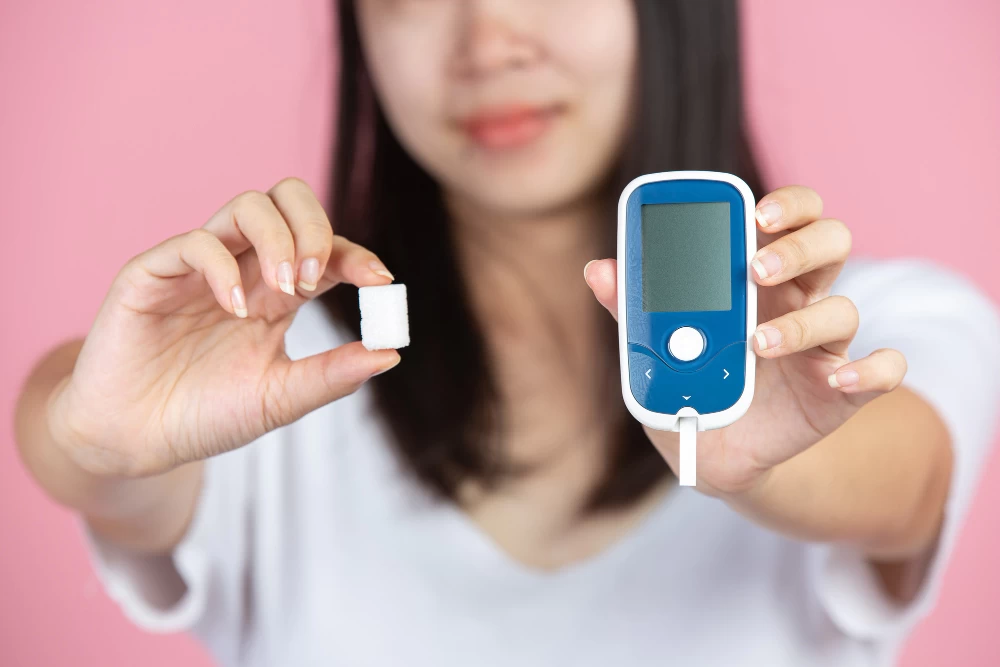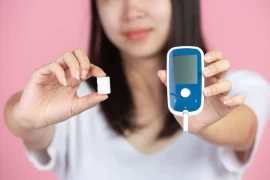
Insulin Resistance
- Insulin Resistance
- What should be the limits of Insulin Resistance?
- You can beat insulin resistance with your dietitian.
- What kind of diet should be followed for insulin resistance?
Insulin resistance is when the body reduces the effect of the hormone insulin. Insulin sends glucose (sugar) to the body's cells and is used for energy production in the body. Insulin resistance causes the body's cells to reduce the effect of the hormone insulin, which reduces the entry of glucose into cells. This causes glucose in the body to remain high, which can lead to health problems such as diabetes.
Insulin resistance is often associated with factors such as obesity, excessive alcohol consumption, stress, sedentary lifestyle and excessive exercise. In the treatment of insulin resistance, measures such as losing weight, exercising regularly and following a healthy diet are taken. Also, doctors sometimes prescribe insulin medications or other types of medication to people with insulin resistance.
It is important for people with insulin resistance to consult their doctor regularly and follow the recommended precautions to prevent health problems such as diabetes.
What should be the limits of Insulin Resistance?
Insulin resistance is a decrease in the sensitivity of cells in the body to insulin. This makes it difficult for glucose (sugar) in the body to enter cells and be used for energy production. Insulin resistance can lead to health problems such as type 2 diabetes and obesity.
The limits of insulin resistance may vary according to variables such as a person's body mass index (BMI), age, gender, family history, and ethnicity. BMI is calculated by dividing weight by the square of height and is used to measure obesity. People with a BMI of 25 and above are more likely to have insulin resistance.
However, BMI alone is not sufficient to determine the limits of insulin resistance. There may also be people who are not overweight but still have insulin resistance. Therefore, it is recommended to seek advice from your doctor to determine the limits of insulin resistance. Your doctor can order a test that measures blood sugar and insulin levels to determine insulin resistance and can advise you about your insulin resistance.
To reduce insulin resistance, a healthy diet and regular physical activity are recommended. Also, practicing stress-reducing techniques and reducing smoking and alcohol use may also help reduce insulin resistance.
You can beat insulin resistance with your dietitian.
Insulin resistance is a condition in which the body reduces or destroys the effectiveness of the hormone insulin. This reduces glucose uptake by cells, causing glucose to accumulate in the body. Insulin resistance is often one of the causes of health problems such as obesity, hypertension, cardiovascular diseases and type 2 diabetes.
Dietitians recommend that people with insulin resistance change their diet and exercise. This will assist in regular monitoring and lowering of body weight. Also, dietitians recommend foods that contain high amounts of fiber, protein, and healthy fats. Such foods will regulate insulin levels and enable the body to use glucose more effectively.
Dietitians also recommend that people with insulin resistance reduce their alcohol consumption. Alcohol disrupts glucose levels in the body and can cause insulin resistance problems. Dietitians also recommend regulating insulin levels by regulating the dosage of foods that people with insulin resistance will consume.
As a result, dietitians recommend that people with insulin resistance follow a healthy diet and exercise program. This will assist in regular monitoring and lowering of body weight, and will help regulate insulin levels, enabling the body to use glucose more effectively.
What kind of diet should be followed for insulin resistance?
Insulin resistance is a condition in which the body's cells cannot use insulin effectively. This can be controlled by increasing the body's production of insulin, and some changes can be made to help reduce insulin resistance. A diet that can be applied for insulin resistance can be arranged according to the following recommendations:
Reduce carbohydrate intake: Because people with insulin resistance have difficulty processing glucose, it may be possible to reduce insulin resistance by reducing carbohydrate intake. Therefore, by reducing the amount of carbohydrates consumed, it may be possible to lower glucose levels and reduce insulin production in the body.
Reduce fat intake: It may be possible to reduce insulin resistance by reducing fat intake. In particular, reducing the consumption of trans fats can help reduce insulin resistance.
Increase physical activity: Physical activity can help reduce insulin resistance. Therefore, it is recommended to do at least 150 minutes of moderate-intensity physical activity per week.
Take care to eat regularly: Eating regularly can help reduce insulin resistance. Therefore, it is recommended to eat small portions at regular intervals throughout the day.
Reduce daily salt intake: Reducing salt intake can help reduce insulin resistance. Therefore, it is recommended to avoid salty foods and reduce the consumption of foods containing high salt.
Increase daily water intake: Increasing water intake can help reduce insulin resistance.




